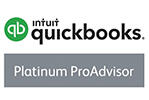New disclosure facility for R&D claims launches
A new disclosure facility for companies to rectify inaccurate, historic R&D claims, has been launched. Who might be affected, and how should you use it if you need to?

Due to the frequency of errors and fraudulent activity in Research & Development (R&D), HMRC has published guidance alongside a new disclosure facility for overclaimed tax relief. Generally, HMRC can charge higher penalties if it discovers an inaccurate claim, compared to the taxpayer coming forward and offering to correct their error. This facility should only be used where it is no longer possible to amend the relevant tax return to correct the tax position, i.e. where the deadline to do so has lapsed and there is tax to repay.
One potential issue is of course that taxpayers may be unaware that relief has been overclaimed, having relied on advice taken at the time the claim was made – which may have been done on a “process now check later” basis. Many R&D claim agents have been found to be untrustworthy as they targeted sectors that HMRC have noted are unlikely to be carrying out R&D, such as care homes, retailers, childcare providers, pubs and restaurants. Businesses operating in such sectors should review historic R&D claims and seek advice from a reputable firm if there is any doubt as to the validity of the claims.
To complete the disclosure, calculations should be submitted with the online form. Within 30 days HMRC should respond to either accept or reject the revised calculations, or to request further information.
Related Topics
-
CT61
-
Repayment thresholds for student finance confirmed
Repaying student finance can seem complicated, with a number of different plan types each having different repayment thresholds. The thresholds for the forthcoming year have just been confirmed. What’s the full story?
-
Advance assurance pilot confirmed
There have been a number of changes to how research and development tax credits are claimed in recent years. HMRC has now confirmed that a pilot of a new clearance procedure will begin later this year. What do we know so far?



 This website uses both its own and third-party cookies to analyze our services and navigation on our website in order to improve its contents (analytical purposes: measure visits and sources of web traffic). The legal basis is the consent of the user, except in the case of basic cookies, which are essential to navigate this website.
This website uses both its own and third-party cookies to analyze our services and navigation on our website in order to improve its contents (analytical purposes: measure visits and sources of web traffic). The legal basis is the consent of the user, except in the case of basic cookies, which are essential to navigate this website.